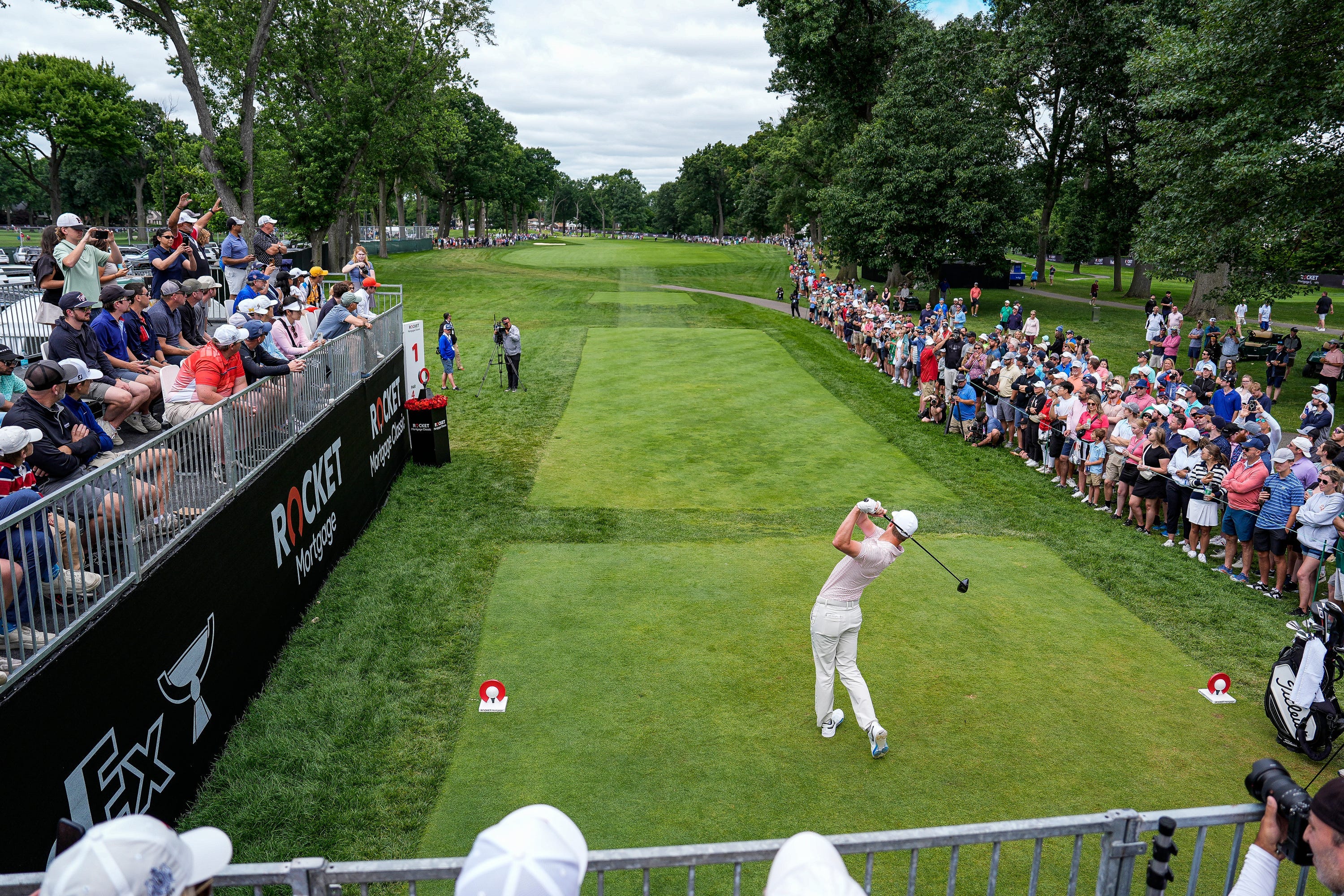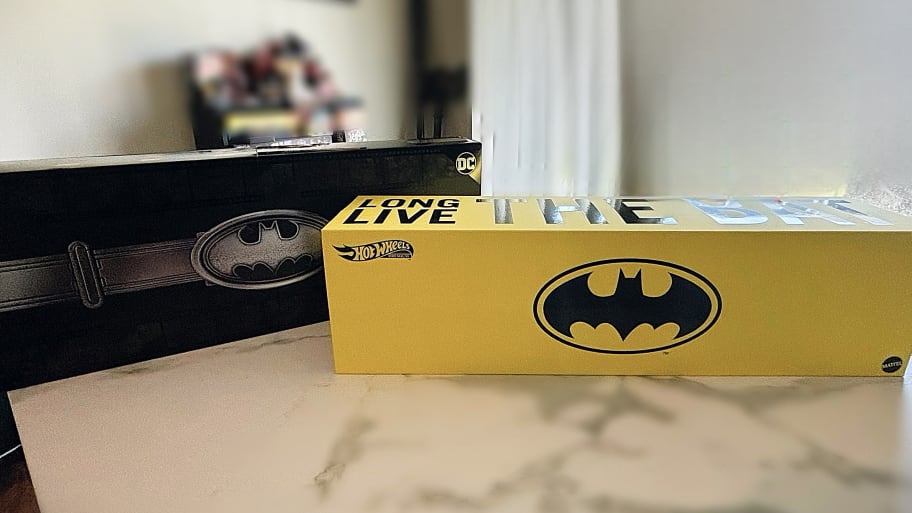
DETROIT GOLF CLUB PREPARING FOR FIRST MAJOR RENOVATION SINCE OPENING IN 1914
A year from now, the excavators, bulldozers and dump trucks will be standing at the ready to begin the first major transformation of Detroit Golf Club’s North Course since it opened more than a century ago.
If all goes according to plan, the course could be unrecognizable to most golf fans when the Rocket Mortgage Classic, the annual PGA Tour stop in Detroit, tees off in 2026.
“It will look like a completely different course,” club president Michael Pricer said matter-of-factly.
Under architect Tyler Rae’s direction, right after next year’s tournament ends more than 100 trees will be removed, native grasses and ditches will be added, greens will be moved and enlarged and bunkers will be added.
For television viewers, the 14th and 18th holes will receive dramatically noticeable changes. The signature pond in front of the 14th green that features sponsor signage during the tournament will be removed and replaced by two large bunkers. The oval-shaped 18th green will be refashioned as a rectangle and moved forward and away from the clubhouse.
About the only people who might recognize Detroit Golf Club in 2026 will be the most astute Donald Ross scholars, or members who have spent significant time in the club’s archives studying Ross’ original 1914 design plans and grainy 1950s-era black-and-white photos.
The 2024 Rocket Mortgage Classic at Detroit Golf Club. (Junfu Han/Detroit Free Press)
“We're trying to get it back to the original Ross design,” Pricer said. “So keeping with the legacy and the history of the club, and really honoring the heritage, that you know Donald Ross has created.
“And we believe that this will be a top-100 course when we're done.”
That’s certainly possible because pedigree goes a long way with golf’s cognoscenti who judge those sorts of things.
But if you aren’t an annoying golf nerd who drops obscure terms like “redan green” in casual conversation, Pricer has a more accessible comparison to what DGC might look like when Rae’s renovation is completed in November 2025.
“I think it's gonna look a lot like Pinehurst, to be honest with you,” he said, invoking this year’s U.S. Open site. “We're really bringing back the original green complexes that Ross intended to design. They're going to be a lot more open, they're going to be a lot bigger.
“So you're going to get a much more expansive view of the entire golf course. Yeah, I don't think it's going to be anywhere near as drastic as Oakland (Hills Country Club's renovation), but it'll be opened up quite a bit.”
Just like its more famous Ross cousin to the north, DGC also faced some resistance from members — perhaps akin to hitting a lob wedge into a two-club wind — when it came to approving the $16 million project. In March, it moved forward after 57 percent of voting members approved it.
Of course, no one wants to spend thousands on a membership, thousands on annual dues and food and other fees and then also have to fork over thousands more for a course renovation.
But this wasn’t a mere vanity project. Pricer and club treasurer Keith Hazely worked hard to explain over several meetings with members that the renovation was a necessity not only to improve the course’s health and playability but also to ensure its future.
Removing trees will assist in growing grass. There will be enhancements to tee boxes and fairways. Then there’s the unseen stuff that probably matters the most, like addressing the 24-year-old irrigation system and the original 1920s drainage infrastructure.
Pricer said DGC’s greens can drain 6 inches of water in one hour, whereas Oakland Hills can drain roughly 20-plus inches in an hour.
“So if we get an inch and a half of rain over 36 hours, we're essentially flooded,” he said. “So we lose cart revenue because we can't put carts out there because it's too soft.”
That turns into a trickle-down problem. Fewer people on the course means less food and beverage revenue, too.
The 2024 Rocket Mortgage Classic at Detroit Golf Club. (Junfu Han/Detroit Free Press)
“It just really economically impacts the club in a pretty tough way,” Pricer said. “At the end of the day, the golf course is the reason why we're here. And so it's time to make the investment.”
That investment cost the top-tier Class A members a one-time assessment of $5,800 and then $170 per month in perpetuity. Not exactly cheap, but hardly bank-breaking for a private club whose parking lot is filled with Cadillacs and Mercedes.
And since the renovation will be done separately on the North Course’s front and back nines, members will still have 27 of 36 of DGC’s holes open for at least two months after next year’s tournament.
Maybe it just took time for the cost and logistics and the reality to sink in for some members, because who wants to pay more for anything? But a week and a half ago, Pricer was walking off the driving range when one member who voted no in March pulled him aside and apologized.
“And you know, it was a nice validation,” he said. “We still got it through but I think a lot of people are starting to realize that when spring and summer come, when it happens, it becomes much more reflective like, ‘Oh, we do need this.’”
Pricer explained all of this while sitting in a cluttered club office. He was surrounded by papers and folders and the rest of the fiscal and logistical detritus of getting a $16 million project underway. The commotion and cacophony of a PGA Tour event whirled outside the window.
And then Pricer mentioned a chilling prospect.
“Because, this is my personal opinion,” he said, “if we don't do this, this course dies.”
This article originally appeared on Golfweek: Detroit Golf Club preparing for first major renovation since opening in 1914
2024-07-01T00:09:45Z dg43tfdfdgfd
